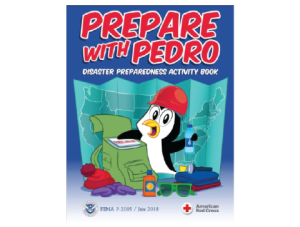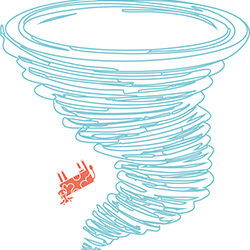No one has the perfect family, you maybe the only person willing or able to make decisions in an emergency. Planning ahead for young people and people with impairments may help to preserve your mental health and make stressful times easier for your dependents.
- Discuss a plan with your dialysis center and plan early for treatment
- Invest in Portable coolers for refrigerated meds
- Make sure you have information for a contact that knows your medical needs (your cell phone maybe unusable or locked up)
- Install emergency lights in rooms
Elderly/Disabled
Some persons may not comprehend what is happening and maybe difficult to evacuate. Planning ahead is critical for caregivers. Have identifying information and contact info for in case they get separated from their care givers.
- Be aware of shut ins in your neighborhood to avoid isolation
- If you are unable to locate or connect with a loved one or friend who has been impacted by a current disaster event, the American Red Cross can help you locate them if they meet certain criteria.
If you live alone and are disabled
- Contact your local fire department and police department to find out how to give them important information about you, including a recent photo that will help them rescue you.
- Tell people you trust, such as family members, friends, and neighbors, that you have dementia and ask them to check in on you if there is an emergency.
- Talk with your health care provider and paid caregivers about planning for your medical and personal care needs in an emergency.
- Have an evacuation plan for the home
For caregivers
- Stay calm and patient
- Add comfort items to your emergency kit.
- Add extra items to disaster kits such as eye glasses and hearing aids, canes, etc.
- Be prepared to shelter in place if evacuation is not possible
- Ask for help and find people and agencies that can help, provide advocates with your emergency plan
Language, cultural issues
Some people maybe triggered by loud noises and shaking and relive old trauma. They may not have English skills to understand what is going on.
- Create disaster information in the language of the person. Use pictures. Learn basic words to explain earthquake, tornado, safe, evacuate etc.
Neurodivergent (autism)
If you or family members are neuro divergent and will have trouble coping with emergencies consider finding safe and quiet places mentally and physically. If you are in a shelter with many people you might ask for a quiet place or request medical help. There is no need to “tough it out”.
 Children
Children
- The American Red Cross has put together a program called Prepare with Pedro
- Prepare with Pedro is available in many languages, in multiple topics and has Materials available for teachers.
- Look for activities to keep the children occupied during an emergency, stickers, drawing books, etc. Down load activities for a tablet.
- Consider adding food items to your emergency kit that give comfort while still being marginally nutritious. It’s probably not lentil soup.
Pets and Livestock
If you have large animals you may be living in an area susceptible to wild fire.
Service animals that assist people with disabilities are allowed in Red Cross shelters, but pets are not allowed.
Make sure your pet is chipped and up to date on vaccinations
Focus on defensible space around pens and corrals
